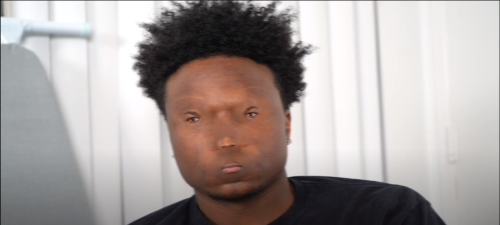Removed by mod
Don’t forget the godfather of educational cooking shows - Alton Brown
if you’re looking to get into BBQ, then Chef Tom from All Things BBQ (atbbq) and Bradly Robinson (Chudds BBQ) are some of the finest BBQ tutorials on youtube.
I second chef John. I love Kenji too, but his videos are not polished enough to be good for beginners. John provides all the detail you need in an easy to follow fashion which is great for beginners. His channel is called Food wishes for anyone looking for him since chef John might be too vague.
Not familiar with the others but if they’re mentioned in the same breath as them then I’ll definitely want to check them out!
Brian Lagerstrom is great too. I combined parts of his and chef John’s chili technique to win a local chili cook off!
Just recipes, no Javashit, no trackers, loads instantly.
Does something similar exist in metric? It’s a chore to translate every item.
Holy shit. This website is great. Thanks.
The search field uses javascript
But not Javashit :p
of the websites that I used to learn how to cook some fifteen, twenty years ago, serious eats is still pretty reliable. I like their articles - they tell you why food cooks the way it does. I learned to cook on a basic red pasta sauce what’s been going around the family for generations so I’d recommend looking at their italian and starting there.
Start small - like a fried egg. All you need is a pan, a spatula, some butter/oil and an egg itself.
Then upgrade to an omlette.
Then omlette du fromage.
Then a pirate’s eye (egg in a slice of bread/bagel). Add some dill.
Boil some potatoes.
Mash some boiled potatoes.
Rice is simple - just boil it for some time.
Essentially - you’ll learn by doing. Just don’t start with making your own bread and you’ll be fine.
That’s all you can say!
Also it’s bad french, it’s ‘omelette au fromage’
When starting to cook on my own, I always found it very stressful, because I felt you had to do so many things in parallel and then you look away for too long at the wrong time and something burns.
What helped me is reading the whole recipe very carefully and then prepare everything before actually starting to cook. Many recipes tell you something like “while x simmers, cut y / prepare z”. That’s fine, when you have developed a feeling for how long things take, but as a beginner, it’s better to do everything sequentially. It takes longer that way, but it makes it much less stressful and overwhelming.
This is great advice!
In addition to what others have said already: make peace with the fact that you WILL make mistakes, that the first few tries WILL look weird and that you WILL forget an allegedly important step. This is just part of the learning courve and happened to literally everyone who ever learned to make meals in the history of cooking, so do not compare the first ever flattened sushi roll you made with something a master chef with 30+ years of experience is able to do or the heavily photoshopped pictures on food blogs.
You will learn from those mistakes, and you will gain more experience over time. Small progress is still progress.
Also, it can help to only make PART of a recipe yourself when you’re still a bit unsure how all of it works, like for example buying premade pizza dough and only add the sauce and toppings yourself, or buying premade pie dough and only make the filling. One step at a time.
You start by learning how to pour cereal
keep a fire extinguisher handy though
Everyone has overcooked their fruit loops at least once, it’s a rite of passage
No matter how you learn, remember that you will mess up a lot and don’t let that discourage you. Just try to learn from it and remember it for next time.
Start simple. Like pasta. You boil water, add pasta, set a timer, stir. Drain the water when the timer goes off, but taste it first to make sure. Boom. You cooked pasta.
Beyond that, I would say that you have to make sure you read the recipe to completion, at least once, before you start cooking. Don’t have the recipe ready, and start cooking without having read the whole thing.
Then break it down. Get all your prep work done before you turn on the heat. Have stations for different processes, and have any utensils & bowls you’re going to need, during cooking, ready to go.
Have all the things you’re adding on the side of your weak arm, while your dominant arm stirs, and have all the things lined up in order, so you don’t have to think beyond “grab closest thing & dump.”
Get as much of the thinking done before you turn on the heat, and have everything ready to go, lined up, and sorted out. Then you’ll be able to fully focus on the cooking, not getting things ready at the last minute.
Lorem ipsum dolor sit amet, consectetur adipiscing elit, sed do eiusmod tempor incididunt ut labore et dolore magna aliqua. Ut enim ad minim veniam, quis nostrud exercitation ullamco laboris nisi ut aliquip ex ea commodo consequat. Duis aute irure dolor in reprehenderit in voluptate velit esse cillum dolore eu fugiat nulla pariatur. Excepteur sint occaecat cupidatat non proident, sunt in culpa qui officia deserunt mollit anim id est laborum.
When I was young my mum bought me a cookbook and once a week, usually Sundays, we would make a recipe or two
This is why it might seem so easy to you, wouldn’t you think?
Well obviously OP can’t go back in time to when they were a child, but there’s nothing to stop them getting a cook book once a week and trying out a recipe or two.
I mean, yeah, obviously. But claiming it’s really easy because you were lucky to have normal parents and have been doing it since you were kid, especially on a question that implies someone didn’t have the luxury, is not helping.
I think the part about knowing how to follow instructions is pretty much true though, at least for me. I only started cooking by myself in my mid-20s. I started by just searching a recipe and adding “simple” in my search query so I get something I can realistically make with what I have in the kitchen/pantry. Then I just follow it to the letter. Through repeated trial and error I eventually learned what could be done faster or easier, what ingredients can be substituted, etc.
But claiming it’s really easy because you were lucky to have normal parents and have been doing it since you were kid, especially on a question that implies someone didn’t have the luxury, is not helping.
I don’t think they did that. The bit about cooking being easy and just a matter of following instructions was a completely separate paragraph to the anecdote about it being so easy they learned it when they were a child. And that was my takeaway, incidentally, not the whole “I started as a kid and now I’m a master chef and it’s all easy” but rather “9 year olds can figure this out, I’m sure an adult will have no problem picking up the basics”. You’re combining two separate things in search of a negative take.
I’m not searching for a negative take, I’m just saying how it looks to me. Not OP, not you, not anyone else, just me personally.
I know, and I’m not saying that’s completely the wrong take, just that it’s almost certainly and pretty obviously (although maybe not immediately) not the one that was intended to be delivered.
It may sound meaningless, but the best way to learn to cook is to cook. Learning by doing, that is the way.
Agreed. You can’t really mess up that badly when cooking. Burnt bits can be scraped off and there’s always a way to fix food when you season too much.
I would slightly disagree. Real bad things can happen while cooking. Kitchen safety should not be taken easy. One thing that comes directly to my mind is deep frying. Any higher amount of hot oil needs to be treated with respect. AND NEVER EVER PUT WATER INTO BURNING OIL. Suffocate it with a pot lid or a fire blanket.
Good point! Adding on to that, NEVER USE DULL KNIVES or catch a falling knife. Generally just be careful around sharp or hot objects
A quote I think about is “a falling knife has no handle.”
I’ve never dropped a knife but I’m hoping if I do I’ll be prepared!
Always put a damp towel underneath a cutting board so it doesn’t move when you’re using it. I credit this in combination with safe knife holding techniques as the reason why my comically clumsy ass hasn’t had to go to the ER to get stitches/reattach digits in the 15 years I’ve been cooking.
There’s a cool book called The Ministry of Food or something by yer man Jamie Oliver.
Taught me a thing or two.
Tasty dishes, simple recipes.
My mother taught me how to cook basic stuff at an early age and every time she would remind it was important I knew how to make my own food in case something happened to her.
Kindergarten age: make your own chocolate milk
6 y/o to 8: Learn how to boil rice, learn how to cook pasta. Sandwiches.
8+ : fried eggs, potato and pumpkin mash. Veal and chicken schnitzel (crumbed) is very easy too, though time consuming. Cooking steak in the oven is very easy, same for chicken drumsticks. You don’t need to add anything to it, just salt or lemon, remember to oil the tray though.
Learn to wash veg thoroughly for salads. Lemon, olive oil and salt make a good dressing 90% of the time. Grate carrots. Learn you can boil legumes too.
At this point, with this knowledge and a can opener you have enough resources to eat healthily and cook your own very easily. I still eat pretty much this most of the time and I’m in my mid 30s now.Next come omelettes, meatballs, patties. Quiche is super easy too. Once you master this level you can easily follow more complex recipes from any book. If you got any questions for the basic recipes just let me know.
I highly recommend subscribing to a meal delivery kit for a few weeks, I think they’re fantastic for beginners. Reasons:
- Grocery shopping and ingredient portioning is already done for you, allowing you to focus on the cooking
- Ability to try new ingredients without committing to buying a full quantity of the ingredient. It sucks when you buy a specific sauce for a new recipe you want to try, only to realize you’re never going to want to use it again.
- Enough choices in recipes but not an overwhelming amount; there are so many recipes and resources online that that’s all you need to learn, but it can be overwhelming and hard to know where to start
- Recipes are generally standardized, well-tested, and don’t require special equipment or advanced techniques
I definitely don’t recommend doing this long term because it starts to get repetitive and is ultimately more expensive than doing your own shopping and planning, but it removes quite a few barriers to entry. Home Chef was the one I enjoyed the most personally but Blue Apron is also reliable and liked by many. Once you are comfortable with the basics you can really just search any recipe you’re interested in and just go for it; follow your interests and the skills will come with experience.
Similar idea to this is to look at CSA (Community Supported Agriculture) in your area. Each are a bit different but the ideal would be one where you can do a smaller share that will let you get a wide variety of produce in weekly pickups. I’m subscribed to one this summer I’m quite liking. Each week it’s a different variety of fruit and veggies with recipe recommendations. They give out pack lists in advance so you can do your shopping to make sure you have what you need for cooking (because it doesn’t give you everything like a meal kit).
The big thing is it forces you to figure things out and just try things to a greater degree than meal kits in my opinion. Like recently summer squash and zucchinis were in season so I ended up cut them up together and throwing them in butter and oil really lazily due to some random recipe suggestion I found. Had too much zucchini left over so tried out zoodles which is surprisingly trivial. I’ve even now done quick pickling because they gave me so many fucking mini-cucumbers, which also is surpringly easy as long as you have glass jars. I liked that especially as it gives me much more of a sense that I actually made something VS something immediately eaten.
It’s only about a year ago I started making any attempts at cooking, having the CSA has done a lot more for pushing me into the deep end than anything else. I tried meal kits in the past and it never really stuck with me or felt less overwhelming. Starting from an ingredient just seems to click more for me, but it’ll definitely depend on what is it about cooking that’s a problem for you. For me I knew the basic mechanics and have no problem grocery shopping but how ingredients combine and why was a mystery that following a complex recipe roboticly didn’t help with.
I know not everyone has the same availability for access to local farms and it can be an upfront cost that’s difficult for people. But if you look around you might be surprised what’s available, some farms will really go out of their way to make things convenient since CSA can be a huge way for them to stay in operation. And you get a lot of the freshest food possible over the course of months.
I’m going to second this idea having used a couple meal prep services in the past.
We used Hello Fresh. Both my partner and I had basic cooking skills, but were not very good cooks. He was also a very picky eater. Hello Fresh reduced the overwhelming amount of recipes in the world down to a more reasonable number to choose from. As we kept going, we started to see the same techniques, like reduction sauces, happen in new configurations and we started to understand how they work, not just follow the instructions. It also helped my partner overcome a lot of his pickiness by being in control of what recipes we had each week, allowing him to explore new ingredients when he felt comfortable.
While maybe not super cost friendly, I second the meal box angle. I wasn’t bad at cooking, but was definitely super slow with knife skills, not comfortable with some stovetop methods of cooking, etc. We used Hello fresh and Plated (before they went out of business), and that really springboarded us into feeling like we could cook. Haven’t ordered any meal boxes in like 5 years now, and make homemade dinners 4+ times a week.
Agree that meal boxes are a good training step. We started using blue apron and after we got the hang of things, realized how much cheaper it would be to buy the ingredients on our own. The bottles of sauces can be pricey up front, but once you have a collection of them, cooking is easier and cheaper. Also, people are really impressed if you can impromptu make something without having to go out shopping.
I felt like a true adult when I decided to make hummus one day and just happened to have everything for it.















